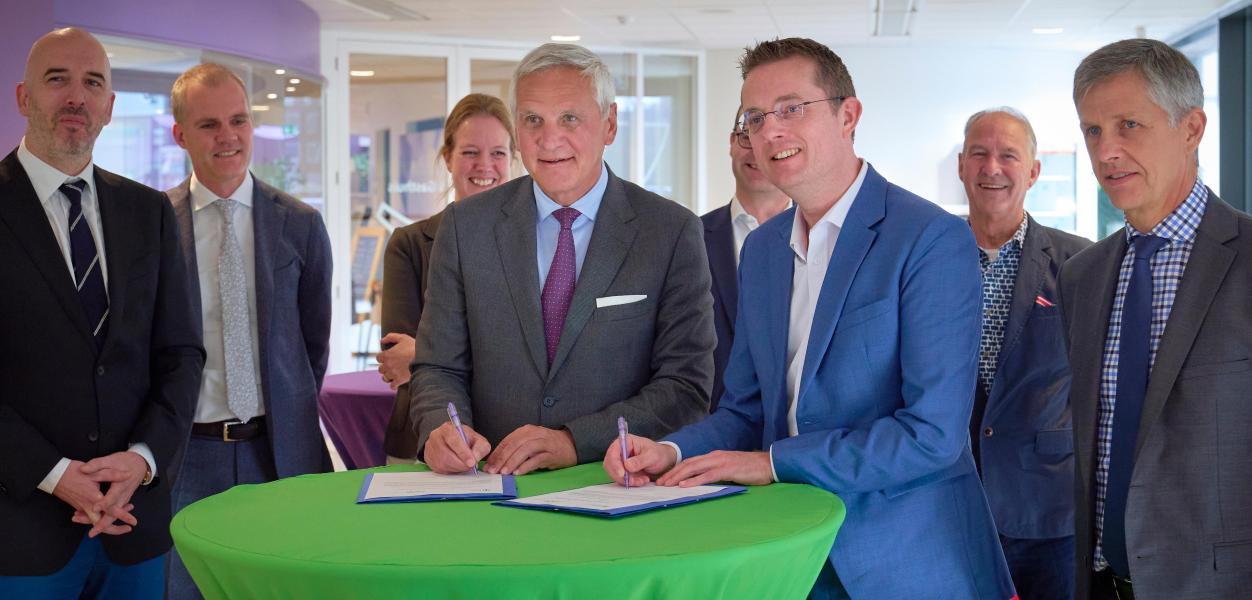
- St. Jans hospital will replace its existing facilities with two new energy-efficient buildings, saving energy and cutting emissions.
- The new buildings will provide patients and staff with an optimal care and working environment.
St. Jans Gasthuis Weert is set to receive new buildings, financed with EU funds. A €40 million loan has been granted by the European Investment Bank (EIB), with a €15 million loan from BNG Bank completing the financing package for the new construction projects. The buildings will not only provide a more efficient working environment, but will also comply with the EU taxonomy for the construction sector via their energy efficiency. The new hospital will also offer a pleasant and modern environment for its patients and employees.
The oldest of the buildings housing the St. Jans Gasthuis Weert (SGJ) dates from the middle of the last century, with a few additions having been made over the years. It is approaching the limits of what is possible in terms of work organisation in the current facilities. A new hospital is set to be built in two phases on the St. Jans Gasthuis’ current site as part of a ten-year renovation project. More efficient organisation of its facilities and tasks will enable the hospital to operate in a smaller space than it occupies today.
EIB Vice-President Kris Peeters said: “The European Investment Bank's activities aim to improve people’s lives. The EIB has financed a large number of health facilities in the Netherlands in recent years, starting with university hospitals. The Bank is delighted to now be able to provide the same financial support to local hospitals. As the EIB is also the EU climate bank, it welcomes the energy efficiency of the future buildings and the major reduction in emissions they will bring about.”
During the first phase of the work, part of the existing campus will be demolished and replaced by a new building housing services including the maternity unit, nursing, emergency care and a pharmacy. The second phase will see the construction of the other building, which will house operating theatres, an outpatient clinic, offices and a restaurant. The new campus will cover around 20 000 m2 compared to the 35 000 m2 occupied by the current facilities. This reduction in floor space and the energy efficient construction will enable substantially lower energy costs and CO2 emissions.
Background information
St. Jans Gasthuis Weert was founded in 1869 and is now a leading regional hospital providing care in all areas. It has a particular focus on vulnerable elderly people, oncology and orthopaedics. With just over 1 000 employees, St. Jans Gasthuis Weert serves a region with 120 000 residents. A recent patient survey found that St. Jans Gasthuis Weert ranked among the top ten hospitals in the Netherlands.
The European Investment Bank (EIB) is the long-term financing institution of the European Union. Its shareholders are the EU Member States (the Netherlands holds just over 5%), which enables the EIB to borrow money on the capital markets at very favourable rates. It makes long-term finance available for sound investment in order to contribute towards key EU policy goals related to sustainable growth, job creation and climate action. Last year, the EIB allocated over €2 billion to projects in the Netherlands in the areas of healthcare, small and medium-sized enterprises (SMEs) and energy efficiency. Over the last five years, more than €1.1 billion in financing on favourable terms has been granted to healthcare institutions in the Netherlands.
BNG Bank is a committed and reliable financial partner that takes an active role in designing solutions to social issues in the public sector. In doing so, BNG Bank makes a particular contribution to achieving five of the Sustainable Development Goals: Good health and well-being (SDG 3), quality education (SDG 4), affordable and clean energy (SDG 7), sustainable cities and communities (SDG 11) and climate action (SDG 13 — particularly cutting CO2 emissions, reducing energy demand and enhancing energy efficiency). BNG Bank is a strong player on the international capital markets. Its financing aims to raise funds, including by issuing bonds, particularly SDG bonds. SDG bonds finance sustainable, social and environmental activities.

